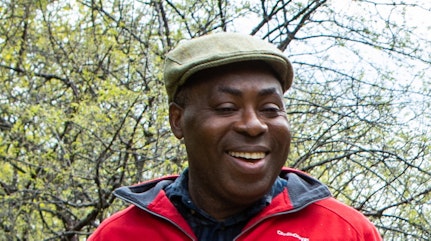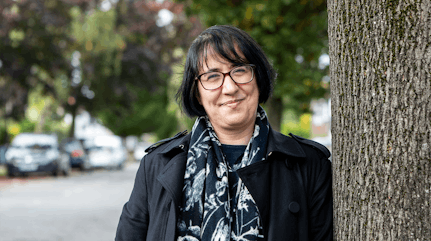Case Study: Rob
-
Case Studies

Case Study: Rob, Assistant Director of Operations and Improvement
I Joined Certitude seven months ago. My background is 20 years working in the homelessness charity sector.
I started as a volunteer, then a support worker before being part of, what was then, a new wave of psychologically informed approaches to care and support.
Before I started working here, I could see Certitude had a focus on coproduction, diversity and inclusion, which are all important to me. I couldn’t work for an organisation that didn’t invest in those things.
I saw two Certitude LGBTQ+ History Month blogs and the fact that one was written by a trustee, gave me the confidence to apply. That a trustee was comfortable enough to get on a platform and talk about their experiences as an LGBTQ+ person made me feel positive about going for the role. I know from experience that inclusion needs to come from the top down to have success.
“During the interviews, I was asked a number of times what I would need in order to be my authentic self at work, and I could tell those questions weren’t being asked in a tokenistic way.”
I could see real investment, not just money but also time and effort, dedicated to networks and events, making sure that minority groups are recognised, have a voice and are heard. These are all good signals that made me feel that I could be comfortable working here.
It’s a very difficult thing for an organisation to properly live their values, and I think Certitude does that better than most. We don’t shy away from areas we feel we need to improve in either – instead we’ll have a conversation about it.
I’ve seen other organisations publicise accolades they’ve won for inclusivity based on one case, or one person’s story, but there’s nothing else to back it up. At Certitude you’re truly able to bring yourself to work. There’s no reason to hide who you really are.
Previously, there would always be an undercurrent of anxiety. Do I look OK? Do I sound OK? At Certitude, I get less impostor syndrome or anxiety going into meetings. Instead, I look forward to seeing people. This is backed up by our culture and behaviours.
What that means to me personally is that I am able to commit further to this organisation, because I am driven by my values. Knowing I work somewhere where I’m valued for who I am means that if I hit bumps in the road or difficulties in work, I think quite carefully about how I’ll work through it rather than walk away.
“It makes me feel more connected to the organisation because there’s something here that you can’t readily find elsewhere.”
I’m involved in Pride@Certitude, our LGBTQ+ network group and I can already see that the organisation supports the network to do the things it wants to do as well as any potential changes and developments in the future. And I think that’s true of our other diversity networks too. With such a diverse organisation, religion could be a challenging one because there can be overlaps in people’s beliefs and people’s value systems, but I think Certitude approaches that with sensitivity. I like the fact that there are rooms allocated for prayer at certain times of the year, and it’s just normalised.





